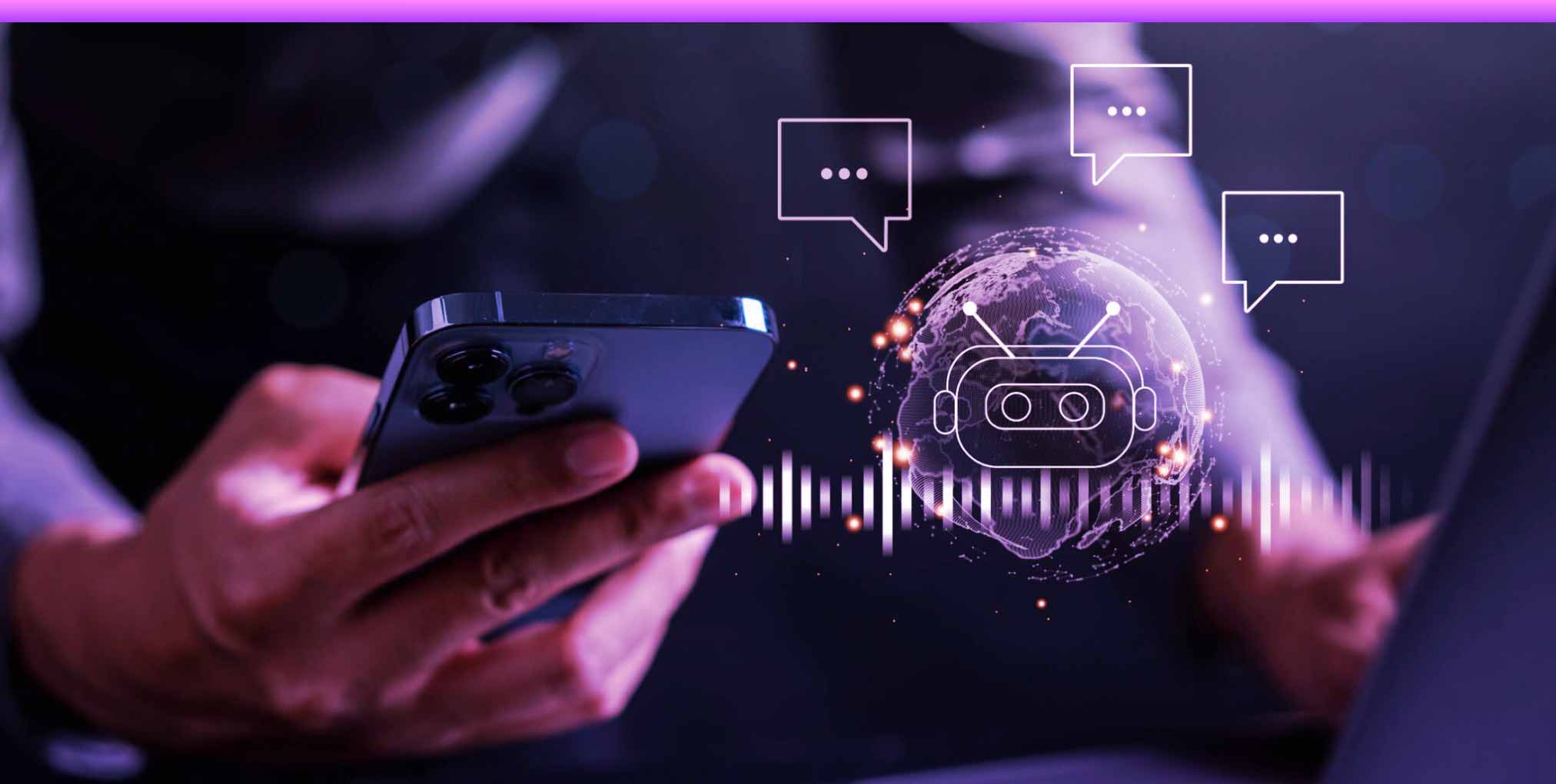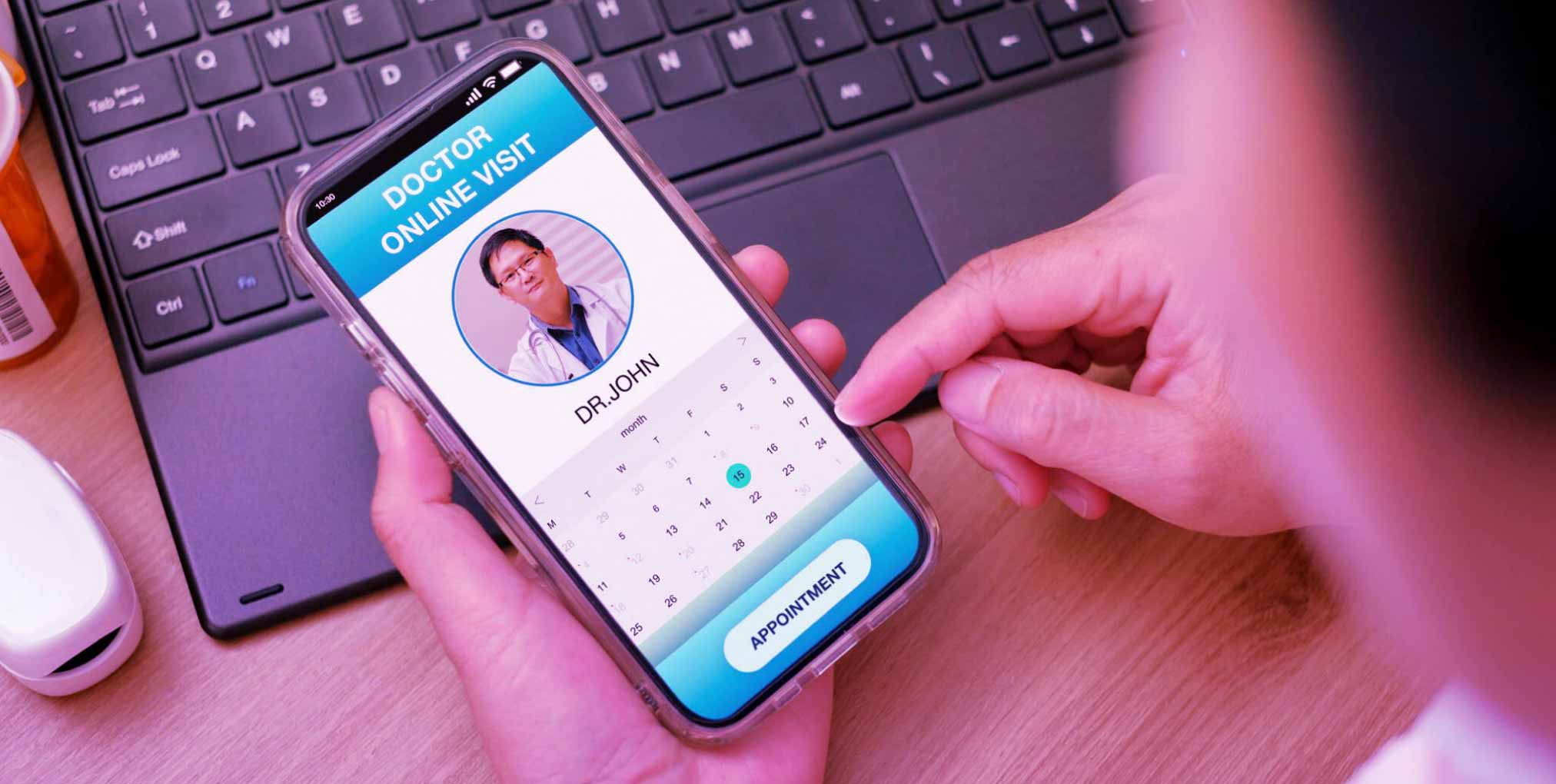

December 29, 2023
Top 10 voicebot use cases in healthcare industry
Voicebot technology refers to the use of artificial intelligence (AI) and natural language processing (NLP) to enable machines to understand, interpret, and respond to human voice commands. Also known as voice assistants, voicebots use advanced algorithms to convert spoken language into text and then analyze and respond to those inputs.
In this blog, we will explore the top 10 voicebot use cases in healthcare, showcasing the potential impact of this technology on the future of healthcare.
Voice AI in Healthcare Industry
Voice AI in healthcare is gaining traction, revolutionizing patient interactions. From appointment scheduling to medication reminders, these intelligent systems streamline processes, enhancing efficiency and patient care. The growing adoption reflects the industry’s recognition of voice AI’s transformative potential for a more accessible and personalized healthcare experience.
The 2021 valuation of the Global Healthcare Chatbots Market is $184.60 million, with a projected growth to $431.47 million by 2028, exhibiting a CAGR of 15.20% during the forecast period from 2022 to 2028.
Voicebot use cases in healthcare
Voicebots in healthcare bring innovation to patient interactions. From appointment scheduling to answering queries, their diverse applications improve accessibility and enhance overall healthcare experiences. Using this technology offers a promising avenue for improving patient care and operational efficiency.
Appointment Scheduling and Reminders

Healthcare voicebots are revolutionizing the way patients schedule appointments and receive reminders. By integrating voice assistants into scheduling systems, patients can effortlessly:
- Book appointments
- Check availability
- Receive automated reminders.
This reduces the workload on administrative staff and also improves the overall patient experience by providing a convenient and efficient method for managing appointments.
It’s like having your assistant make sure you’re on time for your important health check-ups!
Read More: Top 10 Must-Have Healthcare AI Chatbot Features
Medication Management
Voicebots play a crucial role in medication management, ensuring patients adhere to their prescribed regimens. These intelligent assistants can remind patients to take medications on time, provide dosage instructions, and even offer information about potential drug interactions. This proactive approach enhances patient compliance and contributes to better health outcomes.
Patient Education and Information
Voice AI in healthcare serves as a valuable resource for patient education. They can deliver accurate and easily understandable information about medical conditions, treatment options, and post-treatment care. By providing personalized information, voicebots empower patients to take an active role in managing their health. This fosters a sense of autonomy and understanding.
Remote Monitoring and Telehealth
In the era of telehealth, voicebots are instrumental in remote patient monitoring. They can collect and analyze data from wearable devices and answer patient queries about their health status. Moreover, healthcare voicebots also assist in emergencies by connecting patients with healthcare professionals. This expands access to healthcare services but also allows for more proactive and personalized care.
Language Translation Services

In multicultural healthcare settings, language barriers can be a significant challenge. Voicebots equipped with language translation capabilities bridge this gap. It facilitates communication between healthcare providers and patients who speak different languages. This ensures that every patient receives the care they need, irrespective of linguistic differences.
Post-Discharge Follow-Up
One of the vital voicebot use cases in healthcare includes post-discharge care by conducting follow-up calls to patients. They can inquire about recovery progress, monitor for potential complications, and guide post-discharge instructions. This automated follow-up not only enhances patient outcomes but also reduces the likelihood of readmissions.
Administrative Support
Healthcare professionals often spend a substantial amount of time on administrative tasks. Voicebots can streamline these processes by handling routine administrative inquiries, such as
- Checking the availability of test results
- Processing billing inquiries
- Updating patient records.
This allows healthcare staff to focus more on direct patient care.
Read More: Medical AI chatbots: are they safe to talk to patients?
Emergency Response
In emergency situations, every second counts. Healthcare Voicebots equipped with triage algorithms can assess the urgency of a situation based on a patient’s symptoms and provide appropriate guidance. This facilitates quicker response times, ensuring that patients receive the necessary care in critical situations.
Rehabilitation Support
For patients undergoing rehabilitation, voicebots can serve as virtual assistants, guiding them through exercises, tracking progress, and providing encouragement. This increases the efficiency of rehabilitation programs and also offers a cost-effective solution for ongoing support outside of traditional healthcare settings.
Mental Health Support
Voicebots are proving to be valuable allies in the realm of mental health. They can offer support, resources, and coping strategies for individuals dealing with mental health challenges. By providing a non-judgmental and readily accessible outlet, voicebots contribute to destigmatizing mental health issues and promoting overall well-being.
What is the Future of Healthcare Chatbots
Regardless of their demand in the market voicebots still face the reluctance of the people to try it out. Voice AI in healthcare is still in its initial stages and has a long way to go. Without a doubt, medical chatbots will become more accurate and efficient, but that alone won’t be enough to ensure their success in the healthcare industry. As the healthcare industry is a blend of empathy and therapy, a similar balance will have to be created in chatbots to become more successful in the future.
Conclusion
The integration of voicebots into the healthcare industry represents a paradigm shift in our approach to patient care and healthcare management. As technology advances, the realization of the full spectrum of healthcare voicebots promises a future where patient care is characterized by compassion and patient-centricity.
For healthcare professionals aiming to integrate voicebots, Xeven Solutions ensures a smooth process. Our expertise enhances operational efficiency, improving patient care through intuitive solutions. Experience operational excellence as Xeven Solutions brings unmatched efficiency to your healthcare niche with voicebot integration.








